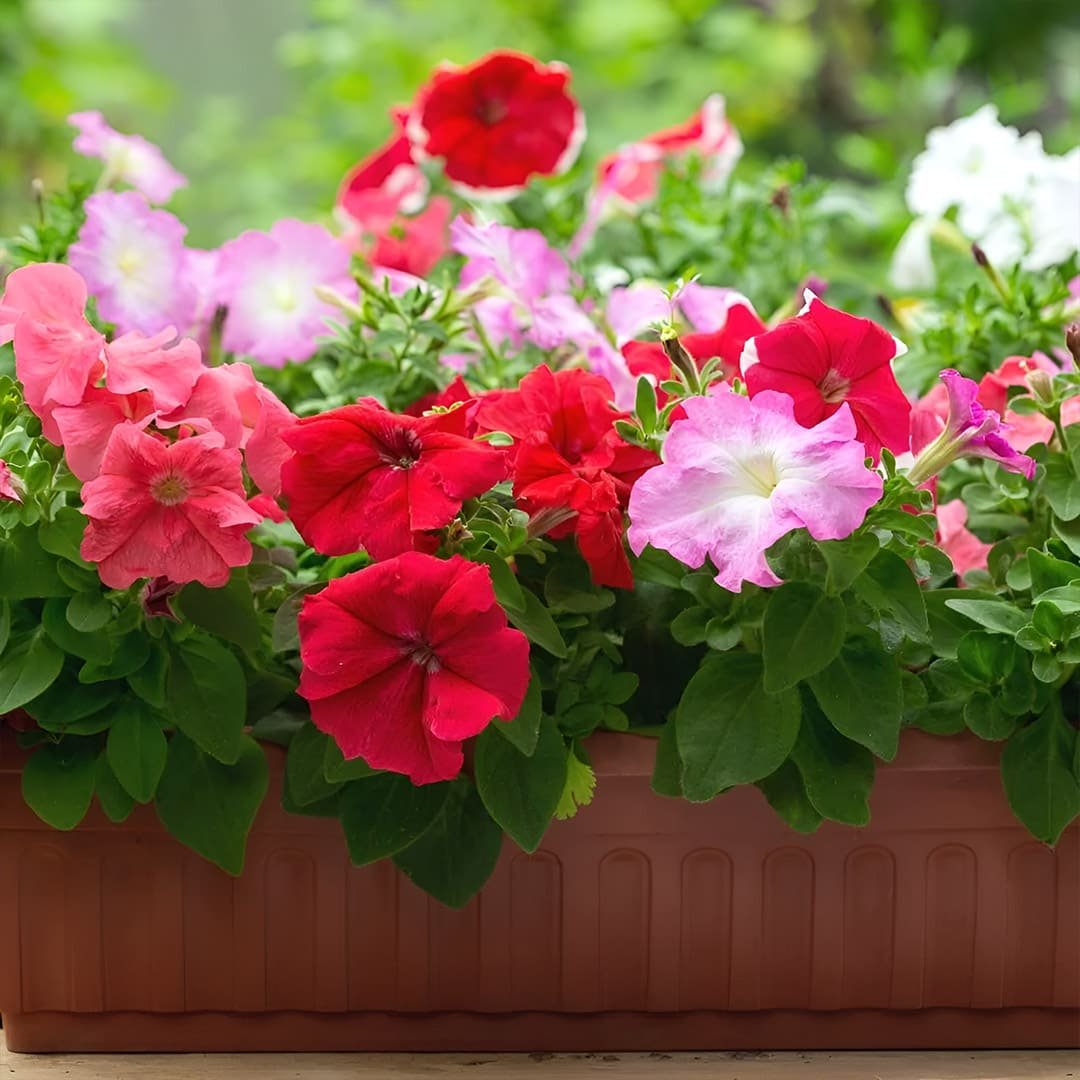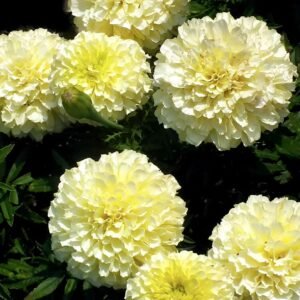Petunia Dwarf Stars Mix Seeds
Original price was: ₹85.00.₹39.00Current price is: ₹39.00.
Product information
- Seed quantity: 300 Seeds
- Where to grow: Balcony or terrace garden
- Sowing Season: October to March
- Sowing method: Seedling transplant
- Germination Temperature: 21-26°C
- Germination Time: 7 to 14 days
- Best for: Bed Sowing/Pots
- Bloom Time: Throughout the year (spring to frost)
- Flower Size: 5-10 cm
Product Description
Petunia is an annual or perennial growing flower that comes in a variety of colors, sizes, and designs. The plant produces oval-shaped leaves and funnel-shaped soft and five-petal flowers. Petunias are very popular among gardeners because they make gardens happy and fragrant and also help attract butterflies. Petunia is a low-maintenance flower plant and very easy to grow in a home garden, terrace garden, or balcony
Product information
- Seed quantity: 300 Seeds
- Where to grow: Balcony or terrace garden
- Sowing Season: October to March
- Sowing method: Seedling transplant
- Germination Temperature: 21-26°C
- Germination Time: 7 to 14 days
- Best for: Bed Sowing/Pots
- Bloom Time: Throughout the year (spring to frost)
- Flower Size: 5-10 cm
Petunias Plant Care Tips
Soil: A light, fertile and good-drained soil is best for planting petunias.
Water: Petunias require moderate watering; neither let the soil dry out for long periods of time nor water the soil too much. Consistent soil moisture is enough for a petunia plant.
Sunlight: Petunias grow very well in full sunlight for at least 6 hours and can also grow in some shade on hot summer days. But shade-grown petunias produce fewer flowers.
Temperature: The optimum day temperature for growing petunia is 15-29 °C while the night temperature is 12-18 °C.
Pruning: Removing or deadheading spent flowers is very important for a petunia’s healthy growth. Deadhead encourages more blooms and gives room for new blooms. In addition, it is important to regularly remove any infected or dry parts of the petunia plant for better growth.
Common pests and diseases: Pests such as aphids, fleas, beetles, slugs, and snails feed on the plants. And gray mold disease infects plants, especially during the rainy season. You can use neem oil to repel insects on petunia plants, and gray mold disease can be controlled by removing infected leaves or flowers.







